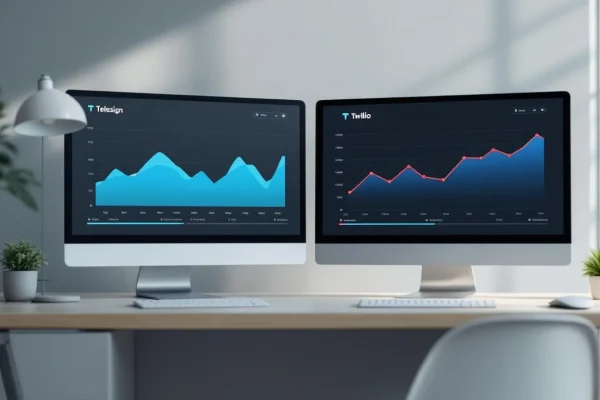Ethical Considerations of Voice Cloning in Business [2025]
![Ethical Considerations of Voice Cloning in Business [2025]](/blog/wp-content/uploads/emplibot/voice-cloning-ethics-hero-1758510427.webp)
Voice cloning technology has reached a tipping point where businesses can replicate human speech with startling accuracy. This advancement brings unprecedented opportunities alongside serious ethical dilemmas.
At Drop Cowboy, we’ve witnessed firsthand how voice cloning ethics shape customer trust and regulatory compliance. Companies must navigate complex privacy laws, consent requirements, and transparency standards to implement this technology responsibly.
How Do You Legally Collect Voice Data
Voice data collection operates under strict biometric data regulations that treat voice prints as sensitive personal information. Under GDPR, companies must obtain explicit written consent that specifies exactly how voice data will be used, stored, and shared. The Federal Trade Commission requires businesses to implement clear disclosure practices, with violations resulting in fines up to $43,792 per incident.

Companies that collect employee voices need signed agreements that outline usage duration, territorial limits, and compensation structures. For customer voice data, consent must be granular and revocable, with many jurisdictions requiring separate opt-ins for each specific use case.
Employee Voice Rights and Documentation
Employee voice cloning requires comprehensive consent frameworks that go beyond standard employment agreements. Workers must understand their voice will be replicated and used in their absence, with clear boundaries on commercial applications.
California’s Unruh Civil Rights Act specifically protects employee voice rights and requires separate compensation for voice usage beyond normal duties. Smart companies document every voice sample with timestamps, usage purposes, and retention periods (including automatic expiration dates). Best practice involves annual consent renewals and explicit opt-out mechanisms that don’t affect employment status.
Secure Voice Data Storage Standards
Voice data storage demands enterprise-grade encryption and access controls that exceed standard data protection measures. The EU’s AI Act, effective August 2024, classifies voice cloning as high-risk AI and requires audit trails plus technical safeguards.
Companies must implement watermarks on all synthetic audio and maintain provenance logs that link cloned voices to original consent records. Data retention should be limited to 12 months unless business necessity requires longer periods, with automatic deletion protocols that prevent indefinite storage. Regular third-party security audits help identify vulnerabilities in voice data systems (particularly unauthorized access points).
These legal foundations create the framework for ethical voice cloning, but businesses face even greater challenges when they must balance authenticity with customer trust in their communications.
How Do You Handle Voice Cloning Disclosure
Businesses face immediate credibility risks when customers discover undisclosed voice cloning in communications. The Federal Trade Commission now requires explicit disclosure when synthetic voices represent human speakers, with enforcement actions that target companies who mislead consumers about AI-generated content. Research from the University of Southern California shows that 73% of consumers feel deceived when they later learn a voice was artificially generated, which leads to measurable drops in brand trust scores.

Mandatory Disclosure Frameworks
Companies must implement clear disclosure protocols that identify synthetic voices at the start of each interaction. The most effective approach involves verbal disclosure statements like “This message uses AI-generated voice technology” followed by written confirmation in follow-up communications. Major telecommunications providers now require these disclosures for compliance, with violations that result in service termination. Smart businesses place disclosure timestamps in their audit logs and train customer service teams to address voice cloning questions directly rather than deflect concerns.
Transparent Communication Standards
Transparency works best when companies proactively explain their voice cloning benefits rather than hide the technology. Netflix successfully uses synthetic voices for multilingual content with upfront disclosure, which maintains audience trust while it reduces production costs by 40%. The key lies in how companies frame voice cloning as an enhancement rather than a replacement (emphasizing improved response times and consistent service quality). Companies should publish voice cloning policies on their websites and include synthetic voice indicators in their brand guidelines to maintain consistent customer expectations across all touchpoints.
Customer Trust Recovery Protocols
Companies that face voice cloning backlash need immediate response strategies that address customer concerns head-on. The most successful recovery approach involves direct acknowledgment of the technology use, detailed explanations of security measures, and compensation offers for affected customers. Organizations should establish dedicated support channels for voice cloning inquiries and create FAQ resources that address common concerns about data privacy and voice authenticity.
These disclosure requirements create the foundation for ethical voice cloning, but companies must also navigate an increasingly complex web of international regulations that vary significantly across jurisdictions.
What Voice Cloning Regulations Must You Follow
The Federal Trade Commission treats voice cloning under Section 5 of the FTC Act, which prohibits deceptive practices in commerce. Companies face enforcement actions when synthetic voices mislead consumers about human interaction, with recent penalties that reached $2.95 million for undisclosed AI communications. The FTC’s 2024 guidance requires businesses to implement reasonable disclosure measures and maintain audit trails that document voice cloning usage across all customer touchpoints. Industry leaders like Microsoft and Google have established voluntary standards that include watermarks on synthetic audio and real-time detection systems, which set benchmarks that smaller companies must match to avoid regulatory scrutiny.

International Compliance Creates Complex Requirements
The EU’s AI Act classifies voice cloning as high-risk AI technology and requires conformity assessments plus CE marking by August 2026. Companies that operate in Europe must conduct impact assessments, implement human oversight systems, and maintain detailed documentation of voice training data sources. China mandates real-name verification for synthetic media creation and requires government approval for commercial voice cloning applications (with violations that result in immediate platform bans). The UK’s upcoming AI regulation framework will likely mirror EU standards but with faster implementation timelines, which forces multinational companies to develop region-specific compliance strategies that address consent requirements and data localization rules.
New Legal Frameworks Target Voice Rights Protection
New York’s recently updated right-of-publicity laws explicitly cover AI-generated voice replicas and establish precedent for other states to follow similar approaches. The landmark Lehrman & Sage v. Lovo case demonstrates how courts now recognize electronic agreements for voice licensing and hold companies liable for unauthorized voice usage regardless of copyright protections. Australia’s proposed cybercrime legislation will impose obligations on service providers to prevent voice cloning fraud, with estimated compliance costs of $42 billion across the economy. Companies must now track state-level regulations that treat voice data as biometric information and require specialized storage protocols plus consent mechanisms that exceed traditional privacy law requirements.
Compliance Costs and Implementation Challenges
Voice cloning compliance demands significant technical infrastructure investments that many businesses underestimate. Companies must implement watermark detection systems, maintain provenance logs, and conduct regular third-party audits (with costs that typically range from $50,000 to $200,000 annually for mid-sized organizations). The complexity increases when businesses operate across multiple jurisdictions, as each region requires different consent mechanisms and data handling protocols that create operational overhead. Businesses must comply with all rules, regulations, and laws including the TCPA, TSR, and national do-not-call registry requirements when implementing voice cloning technology.
Final Thoughts
Voice cloning ethics demand a proactive approach that balances innovation with responsibility. Companies must prioritize explicit consent, transparent disclosure, and robust security measures to maintain customer trust while they leverage this powerful technology. The most successful implementations combine legal compliance with genuine transparency.
Businesses that openly communicate their voice cloning usage build stronger relationships than those who hide behind technical jargon or minimal disclosures. This approach requires investment in proper consent frameworks, watermarking systems, and regular compliance audits. The regulatory landscape will continue to evolve rapidly, with stricter requirements that emerge across jurisdictions (making early compliance investments essential).
Companies must stay ahead of these changes when they implement comprehensive policies that exceed current minimum standards. The cost of compliance pales compared to the reputational damage from ethical violations. At Drop Cowboy, we help businesses achieve personalization goals without compromising trust or regulatory compliance through responsible voice technology implementation.
blog-dropcowboy-com
Related posts

August 28, 2025
Overcoming Time Zones The Ultimate Guide to Global Message Delivery
Master global message delivery and bridge time zones seamlessly with our ultimate guide. Enhance communication efficiency worldwide today.

May 6, 2025
HubSpot or Monday: Which Project Management Tool?
Compare HubSpot vs Monday for your project management needs. Discover features, ease of use, integration, pricing, and find your perfect tool.

July 20, 2025
How Does Telesign Compare to Twilio?
Compare Telesign vs Twilio to understand their features, pricing, and reliability. Make an informed decision with our comprehensive analysis.

May 27, 2025
Elead CRM: Revolutionizing Automotive Sales Management
Transform automotive sales management with Elead CRM and boost efficiency. Explore cutting-edge tools for dealership success now.

April 8, 2025
Branded Calling: What Is It and Why Does It Matter?
Explore the impact of branded calling on customer trust and engagement. Learn how this approach boosts recognition and differentiates your business.

April 17, 2025
Best Dropshipping Apps to Supercharge Your Shopify Store
Boost your Shopify store with the best Shopify dropshipping apps. Explore efficient tools to enhance your e-commerce business effortlessly.